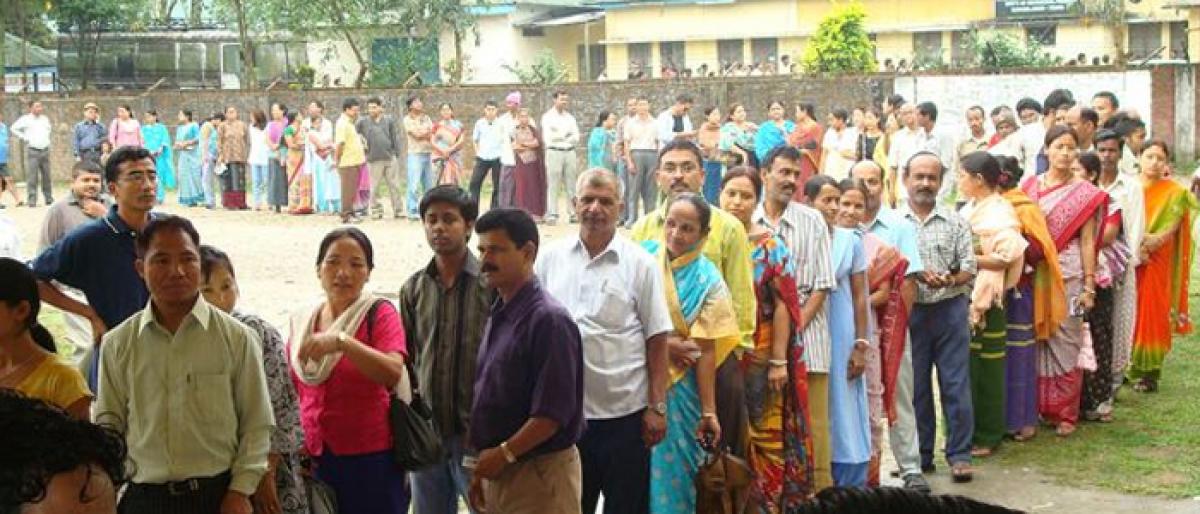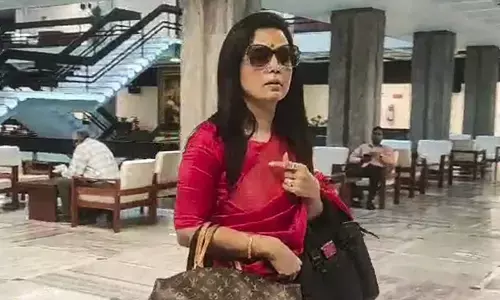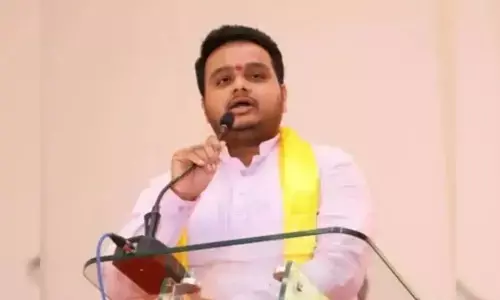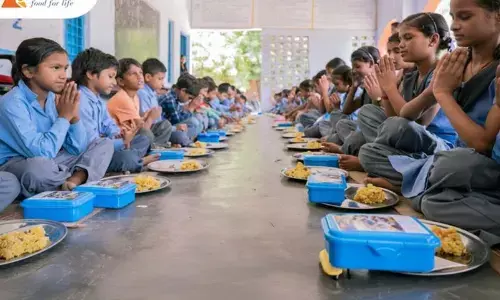Any rationale for snap poll?

At the time of writing this piece, the media is agog with reports that Telangana is heading towards a snap poll A similar buzz, heard on September 2, proved a nonstarter Apparently, in neighbouring Andhra Pradesh, the early poll idea appears to have been considered and dropped Political pundits insist that a premature poll is imminent in Telangana and link it to KCRs recent meeting with Prime
At the time of writing this piece, the media is agog with reports that Telangana is heading towards a snap poll. A similar buzz, heard on September 2, proved a non-starter. Apparently, in neighbouring Andhra Pradesh, the early poll idea appears to have been considered and dropped. Political pundits insist that a premature poll is imminent in Telangana and link it to KCR’s recent meeting with Prime Minister Modi, and that of his senior advisor with a Member of the Election Commission.
This will not be the first snap poll the country has seen, nor will it be the last one. While there might be reasons, political or otherwise, for every such poll, one wonders about the extent to which people need to be taken into confidence in the matter.
The Constitution of India confers upon the states the right to approach the Governors concerned to dissolve the Assemblies and go for polls in advance of the scheduled dates. No permission of the central government is required for that purpose. While it is up to the state government and the Governor concerned to effect dissolution of the assembly, it is for the Election Commission (EC) of India to take a call on when the elections, due thereafter, are to be conducted. Its word on that matter is final.
It will be recalled, in this context that, in 2003, after the attack on the life of Chandrababu Naidu, then Chief Minister of the composite Andhra Pradesh (AP) state, there was a wave of sympathy for Naidu who decided to go in for an early poll. He made a recommendation accordingly to the Governor to dissolve the assembly, upon the acceptance of which the EC came into the picture. It was then that the narrative took a different turn.
Seventy years down the road, Independent India appears to have as many accomplishments, and the institute of Election Commission of India is one among them. It performs the remarkable feat of conducting free and fair elections periodically – no mean an achievement in a country with a population of over one 1.2 billion and several political persuasions. J M Lyngdoh (of the Magsaysay award fame) was then the Chief Election Commissioner (CEC) of India.
This columnist, as the Chief Secretary of AP, was deputed to meet him to explain the situation and seek clearance for an early poll. The CEC, however, felt that more preparation was required for the conduct of free and fair polls, especially by way of intensive revision of the electoral rolls. The various grounds urged, including the embarrassment attendant upon a long-drawn caretaker government, failed to impress him.
Electoral roll revision, a time-consuming process, took seven months to complete. Consequently, decision to go for early poll proved to be politically incorrect. As of now, revision of electoral rolls in Telangana is going on and a timetable till end-November has been drawn up. Putting aside these issues for a minute, the moot question is why the central and the state governments sometimes choose to reduce their mandated tenures.
There have been cases when ruling parties told the people that they desired to do many things for them but lacked the requisite strength and sought a fresh mandate. No such situation appears to be in Telangana today, as the ruling party won 2014 election with a clear majority and added significant numbers to its ranks ever since. The administration has been competent, and the conception and implementation of developmental programmes impressive.
Also, the ruling party has registered impressive victories in bypolls to the Assembly and Parliament, as also elections to the local bodies. The stray protests of some activist groups have not garnered much support from the public. One notices no discernible dissidence or disaffection in the ruling party, either. If this, then, is the situation, why advance the elections? A political calculation? It is not within the purview of this column to discuss politics. So, let us look at the financial and the administrative aspects.
The first question that arises is why the Constitution of India, which gives the right to elected governments to restrict their tenure, does not seem to protect the wishes of the electorate in this regard. When people have endorsed the policies, principles and leadership of a particular party and granted it a mandate of five years, is it at all acceptable that that the party should relinquish its tenure, albeit partially, without the approval of the same people?
There are countries where electorates can recall representatives who have failed to fulfil promises. No such right exists in India. But shouldn’t the electorate at least possess the right to insist that the government elected by it continue till the end of the mandate? Is it not intriguing that the same constitution that prohibits an extension of term of the legislature provides for an abridgement?
Let us take a hypothetical situation where a party in power goes for a snap poll in advance of the completion of its tenure, but another party wins the election. Does this not, clearly, amount to deprival of the right of the electorate to be governed by the party chosen by its majority, though for a short period? While doing so, does not the government need to explain to the people the justification abridging the mandate and secure their approval?
Can a ruling party tell the electorate that it is at the peak of its popularity and it fears that, in the days to come, an anti-establishment feeling may creep in? Or can it say that, though elected for 5 years, it wants to extend it by 3 more years and, while it is still popular, it is going for a snap poll, thus planning to rule for 8 years? The constitution, no doubt, gives elected governments the right to go on extending their terms thus; But the point is, at what cost?
Substantial amounts of money need to be spent on mobilising men and material, and, on the other hand, arrangements including the maintenance of law and order, supervising the proper conduct of canvassing etc. Apart from government, even political parties have to bear expenditure on cadre mobilisation, propaganda material and conduct of public meetings et cetera. Is it not bad enough that such expenditure has, perforce, to be incurred once every five years? Should there be a duplication of that expenditure, merely for the reason that some ruling party feels that a snap poll is beneficial to its political interests?
The common man is frequently asked to sacrifice subsidy on gas, take to car-pooling to economise on fuel, and undergo hardships of several varieties in order to curtail unnecessary expenditure. How can the government that pleads for such measures explain away the extravagance of premature polls? BJP has been strongly canvassing for support to the idea of simultaneous polls for quite some time now in the name of curtailing expenditure.
It has even hinted at extending tenures of some legislatures and cutting short those of others, in order to coincide with parliament election. How it would react to a proposal for early poll from a state, which in the normal course would have had polls to its Assembly and Parliament, remains to be seen. And there is no telling how many more states will follow suit.
On the whole, it would appear to be wise and sensible for all political parties to sit together and consider this important issue of snap polls in a holistic and comprehensive manner and arrive at a consensus that is both politically sound and economically sensible. Is it too much for the common man to hope that this will happen soon?









